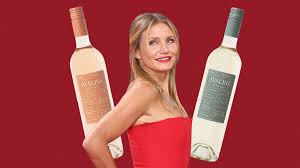by Dwight Furrow
This is what it is to go aright, or to be led by another into the mystery of Love: one goes always upwards for the sake of this Beauty starting out from beautiful things and using them like rising stairs…. (211 c-d, Plato's Symposium)
 We throw the word “love” around without really meaning it. We “love” ice cream, sunsets, or the latest soon-to-be-forgotten pop song. But such “love” requires no commitment and hardly seems worthy of being in the same category as the love of one's child or spouse. Yet, some objects or activities are worthy objects of love because they solicit our sustained attention and care—a great work of art, a career, baseball, a religion. For some people wine seems to fall into this latter category of worthy objects of love. Many people abandon lucrative, stable careers for the uncertainties and struggles of winemaking; others spend a lifetime of hard intellectual labor to understand its intricacies; still others circle the globe seeking to sample rare and unusual bottles. Wine seems to have an attraction that goes beyond mere “liking”—a spiritual dimension that requires explanation.
We throw the word “love” around without really meaning it. We “love” ice cream, sunsets, or the latest soon-to-be-forgotten pop song. But such “love” requires no commitment and hardly seems worthy of being in the same category as the love of one's child or spouse. Yet, some objects or activities are worthy objects of love because they solicit our sustained attention and care—a great work of art, a career, baseball, a religion. For some people wine seems to fall into this latter category of worthy objects of love. Many people abandon lucrative, stable careers for the uncertainties and struggles of winemaking; others spend a lifetime of hard intellectual labor to understand its intricacies; still others circle the globe seeking to sample rare and unusual bottles. Wine seems to have an attraction that goes beyond mere “liking”—a spiritual dimension that requires explanation.
The spiritual dimension of wine has a long history. Dionysus, the Greek god of wine, was said to inhabit the soul with the power of ecstasy—the Ancient Greek word ekstasis meant standing outside the self via madness or artistic expression, and wine was thought to encourage that transformation . The Romans called the same God Bacchus with similar associations. The Judeo/Christian world tames the ecstasy yet still acknowledges the virtues of wine. Judaism has long included wine in its rituals for which it incorporates a specific blessing, and of course, for Christians, wine represents the blood of Christ and gets a number of mentions in the Bible. Other alcoholic beverages have existed for as long or longer than wine, but none have its spiritual connotations.
Today, wine is just one among many alcoholic beverages consumed in great quantities. Yet it sustains its sacramental role—as status symbol, fashion statement, a sign of class, refinement, or sophistication, a source of intellectual delight, the object of a quest for a peak experience, or the focal point of social life—all contemporary renditions of “spiritual” some more debased than others.
Read more »
 Actress Cameron Diaz and her business partner, the entrepreneur Katherine Power, have been all over various media promoting their new product Avaline, a white wine and a rosé, which they bill as “clean wine”. This has stirred up a hornet’s nest of controversy. Here is how they describe this very sanitary liquid:
Actress Cameron Diaz and her business partner, the entrepreneur Katherine Power, have been all over various media promoting their new product Avaline, a white wine and a rosé, which they bill as “clean wine”. This has stirred up a hornet’s nest of controversy. Here is how they describe this very sanitary liquid: